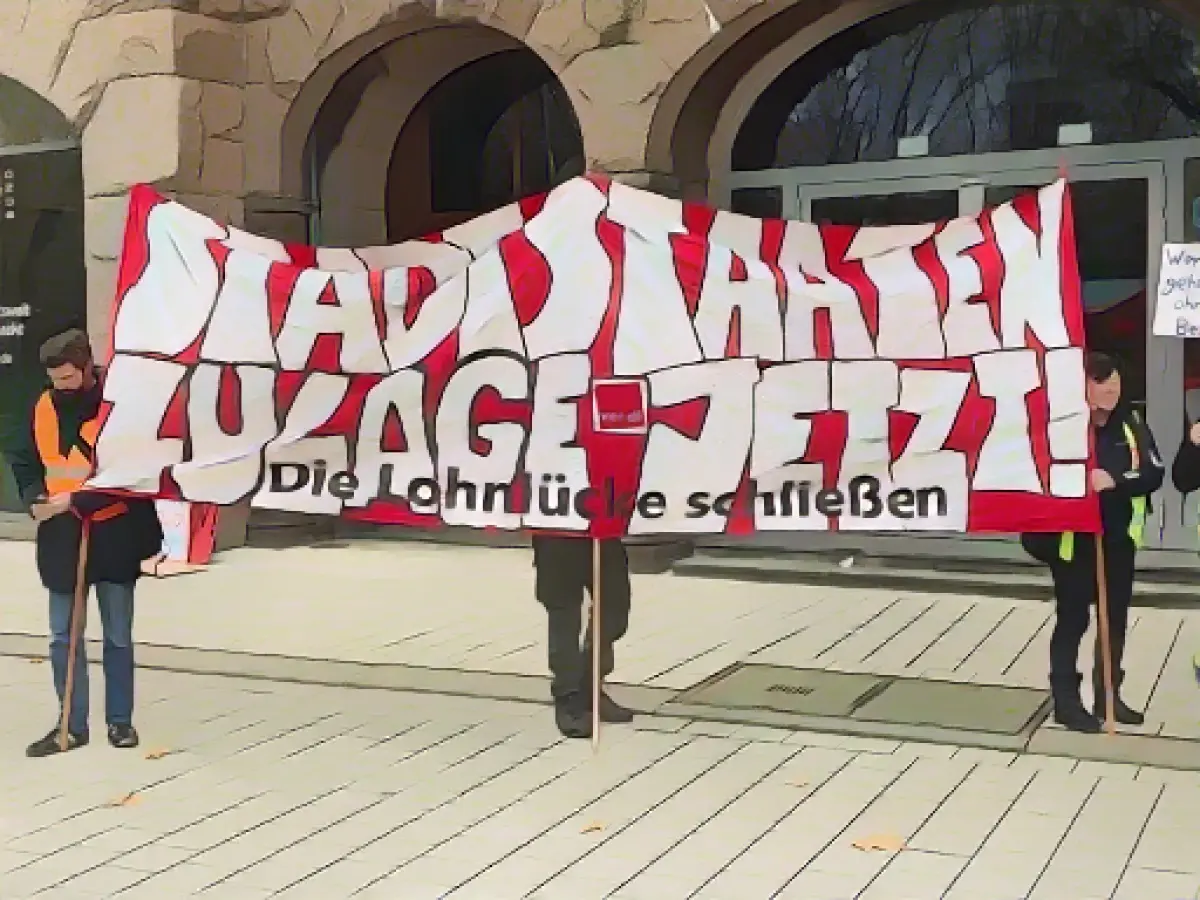Verdi Tangles with TdL Over Public Sector Salaries
Union boss Frank Werneke has pointed the finger at Finance Minister Hartmut Vorjohann of Saxony as the main hindrance in resolving the ongoing wage dispute in the public sector. Vorjohann, also a deputy chair of the Tarifgemeinschaft der Länder (TdL), is reportedly the "stickiest issue" in the negotiations, according to Werneke.
During a rally in Hamburg on October 4, Werneke criticized Vorjohann's stance on not compensating for high inflation by employers while emphasizing the importance of salary adjustments to offset price increases. Werneke also mentioned that Schleswig-Holstein's Finance Minister Monika Heinold, who claimed her state faced financial troubles, should not be held accountable for issues that do not involve the union.
Hamburg as the Hub
Werneke labeled Hamburg as the epicenter of this collective bargaining round, thanks to TdL chair Andreas Dressel serving as the city's finance senator. More than 200 trainees and students from various states gathered in Hamburg for the event, taking part in a rally followed by a march through the city center. Their demands include a 10.5% wage increase, minimum monthly increments of 500 euros, improved compensation for junior staff, and offering permanent contracts to trainees and dual students.
The union also advocates for a nationwide collective agreement for student employees (TV Stud). However, the TdL deemed these demands excessive and unreasonable, and the ongoing negotiations, scheduled to resume on December 7, will focus on the salaries of approximately 1.1 million workers. Moreover, the outcome usually influences the wages of an additional 1.4 million civil servants.
Support from Universities
Educational institutions like universities have lent their backing to the Verdi's wage demands out of solidarity with their public sector employees. Universities are worried about possible tariffs on goods, which could strain their budgets further amid the wage dispute. Some university leaders have shared concerns about the potential impact of strikes on their institutions.
Enriching Insights:
- Strong-willed negotiator: Hartmut Vorjohann, Saxony's Finance Minister, and deputy chair of TdL, has firmly held his stance, making it challenging to find a resolution to the wage dispute.
- Ethical imperative: Universities uphold the principle of fair compensation for their public sector employees in the face of spiraling costs and impending budget constraints.
- Complex negotiations: The ongoing collective bargaining round involves various stakeholders, including Verdi, TdL, federal and state governments, and other trade unions. Negotiations aim to find a balance between the wage demands and the states' budgetary capabilities.
- Uncertain outcomes: The potential resolution of the dispute could result in various outcomes, ranging from substantial wage hikes to more moderate salary adjustments, with potential impacts on universities and public sector budgets.








